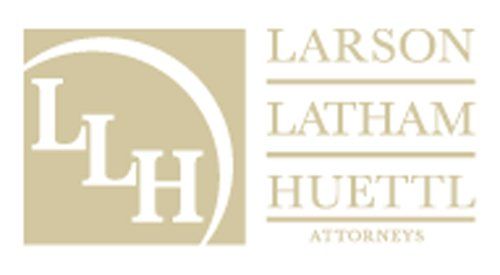Business & Business-Related Areas of Practice
Business Entities and Formation
Larson Latham Huettl can help you pick the proper type of organization to meet your needs and help you every step of the way as your business grows. Working closely with the client's accountant, our firm believes your entity should accurately reflect your operational intent, as well as leveraging the tax ramifications of the chosen form of organization.
Contracts
Normally, when people think of the word “contract,” they sit up a little straighter in their chair, pull out their reading glasses, and get their favorite pen ready to sign on a dotted line. However, there is much more to the world of contract law than the stereotypical document “signed by the parties thereto.”
Debtor-Creditor Relationship
Larson Latham Huettl can help you pick the proper type of organization to meet your needs and help you every step of the way as your business grows. Working closely with the client's accountant, our firm believes your entity should accurately reflect your operational intent, as well as leveraging the tax ramifications of the chosen form of organization.
Legislative and Government Relations
We live in an age of statutes. The vast majority of laws we deal with in our everyday lives, whether they’re called rules, regulations, statutes, or ordinances, are written by our elected representatives in government, whether they serve in Congress, the Legislative Assembly, County Commission, or City Council.
Agriculture Law
Agricultural law not only deals with crops and livestock, but also with land use, environmental rules, government programs, and the use of food products. With the increasing sophistication of farming, ranching, and agribusiness, issues often arise in a multitude of subject matter areas and different legal arenas. Agricultural law is truly a multidisciplinary area and those seeking legal representation may benefit from Larson Latham Huettl’s expertise in more than one of the following areas:
Oil & Gas Law
Oil and gas law is a specialized area of real estate law concerning the title, ownership, use, exploration, exploitation, and development of the mineral estate. North Dakota is considered an ownership in place state, which means the surface estate (ownership of the surface) is separate and distinct from the mineral estate (ownership of the minerals beneath the surface) as though they concern two completely different parcels of land. The mineral estate concerns the ownership of the various substances beneath the surface, or minerals, the most common of which are coal, oil, and gas and is created when the mineral estate is severed from the surface estate, usually through a reservation in a patent or deed.
Real Estate
There are many different aspects to real estate law, the most common of which is the sale of land or a home. However, there are several other issues that pertain to real estate, such as surface and mineral leasing, mortgage financing, foreclosure and workouts, development and construction, eminent domain and condemnation, marketable title disputes, environmental issues, partition and quiet title actions, mechanic’s liens, drainage issues, and landlord tenant disputes.
Real Property Law
All land, structures, firmly attached and integrated equipment (such as light fixtures or a well pump), anything growing on the land, and all "interests" in the property which may be the right to future ownership (remainder), right to occupy for a period of time (tenancy or life estate) the right to drill for oil, the right to get the property back (a reversion) if it is no longer used for its current purpose (such as use for a hospital, school or city hall), use of airspace (condominium) or an easement across another's property.
Real property should be thought of as a group of rights like a bundle of sticks which can be divided. It is distinguished from the other type of property, personal property, which is made up of movable items. 2) one of the principal areas of law like contracts, negligence, probate, family law and criminal law.












